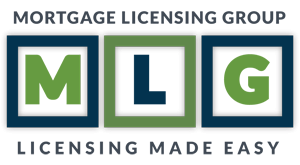How Does Commercial vs Residential Lending Affect Your Mortgage Broker Licensing?
 Real estate will always be in demand because people need homes regardless of economic conditions. That is why many people enter residential lending, and you can earn substantial commissions from a single sale.
Real estate will always be in demand because people need homes regardless of economic conditions. That is why many people enter residential lending, and you can earn substantial commissions from a single sale.
If you are interested in residential mortgages, you must first adhere to mortgage broker licensing requirements.
You can also choose commercial mortgage lending, which does not require the same licensing mandates as the residential path. This article will show you the certification guidelines of commercial vs residential lending. Let’s explore.
How to Become a Residential Mortgage Broker
A state mortgage license requires coursework.
You must complete a 20-hour pre-requisite course to get the license. The coursework consists of state and federal regulations within residential brokering.
Before being eligible to apply for a license, you must take a licensing exam. It is called the SAFE+UST exam and covers topics you learned in the course. The test entails the following topics:
- Business practices
- Guidelines unique to your state
- Federal regulations
The cost of the coursework and exam is usually $600. Overall, you must pass the state and federal sections with a score of 75% or greater. You can find courses via the National Mortgage License System (NMLS), or from our website mymortgagelicense.fastclass.com.
Upon completion of your coursework and exam, you will register your brokering business. Each registration process depends on your state. You must register your business with the secretary of state office. The registration cost varies between $100 to $500.
The business creation process includes the following steps:
- Think of a business name
- Decide the location (physical or online)
- Obtain an employer identification number (EIN)
- Choose a business structure (i.e. LLC, partnership, s-corporation, or c-corporation)
You can obtain an EIN from the IRS at no cost. Some states may require you to maintain a physical location. If not, you are free to operate your business digitally. After registering your business, you are free to apply for your license and bond.
A mortgage broker bond will safeguard your clients if you fail to follow state or federal guidelines. Also, it will give your clients peace of mind, and it will add credibility to your business.
Moreover, your state may require a minimum bond amount. Additionally, you must have a bond to receive your license.
Residential Bonds and Licensing
To obtain a bond, you must pay a premium who’s amount is calculated by your bonding agent.
- Example: In Georgia, all applicants applying for a broker license must have $150K in surety bonds. Mortgage lenders must have a $250K surety bond.
The portion you pay depends on other factors, such as your credit score and financial background. Before applying for a bond, determine the exact amount you can afford to pay.
Then, submit your application online. You can find the application on the NMLS website, and you can receive instant approval online.
After obtaining your bond certificate, attach it to your mortgage application. Include all pertinent information about your business, such as:
- Your business details (company structure, registered agents, managers, etc.)
- Your Web address (if applicable)
- Your Business location
In other cases, you may need to provide a business plan. You will also undergo a background check. If the state approves your application, you will receive your license.
How to Become a Commercial Mortgage Broker
Commercial lending does not come with the same restrictions as residential lending. In fact, you do not need a commercial license to become a commercial mortgage broker in many cases. Most states do not require commercial licensure, but 20 states require a license.
Each state has different mandates, which is why you should check the NMLS website to see if you need a commercial mortgage license in your state.
If you need a commercial license, the license requirements depend on the state guidelines. If you must undergo licensure, you may need to take coursework, pass an exam, and undergo a background check.
- Example: In California, commercial mortgage brokers must take at least eight college courses in real estate and/or finance. Additionally, you must have a minimum of two years in sales. Applicants must also pass an exam and submit to a background check.
If you do not need a license, you are free to start your commercial brokering enterprise. You are also free to work in any state you choose. Further, you can also apply for licenses in different states.
Even if you do not need a license in your state, you should still create a business entity. A business entity shields you from liability and offers tax advantages. You may also need to apply for local business permits, especially if you intend to establish a physical location.
Regarding education, there is no official coursework to complete for commercial brokering. You should still have a financial background before entering the commercial arena. You can gain the necessary experience in the following ways:
- Take college-level finance courses
- Work at a financial institution (banking or lending)
You can work for a commercial brokering firm to get direct experience in the commercial space. There, you can receive training and learn successful tips on how to close deals.
You can also work as an independent broker. As an independent broker, you can offer your clients diverse loan options from multiple lenders. With that, your business will have more credibility if you are linked with an established firm.
Mortgage Broker Licensing: Which is Better?
The choice of residential or commercial mortgage broker licensing is a matter of preference. Choose the commercial path if you do not want to go through the steps of residential licensing. If you choose commercial mortgages, be aware that some states may compel you to take a licensing program that is similar to the residential option.
Regardless of your choice, both lending arenas require extensive networking and consistent lead generation. You can gain leads via print or social media ads.
More importantly, commercial and residential lenders should take ongoing coursework to know the latest trends and gain useful contacts.
Want to learn how to get a mortgage broker license? Click here to get more information on residential mortgage requirements.
The Mortgage Licensing Group, Inc. is a full-service mortgage licensing firm headquartered in Southern California that is recognized throughout the industry as an experienced and reliable service provider. Established in 2006, our company has been on the forefront of the ever-changing rules and regulations, helping alleviate the often-daunting task of meeting the diverse state licensing requirements for our clientele.

